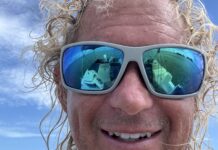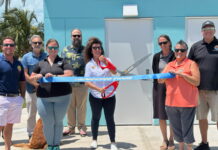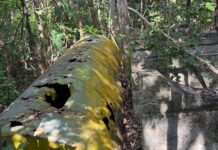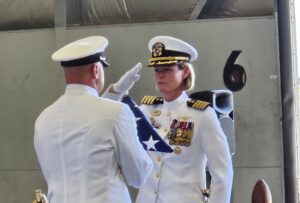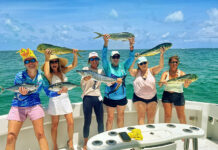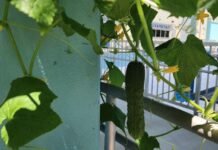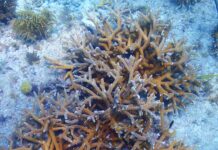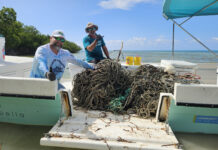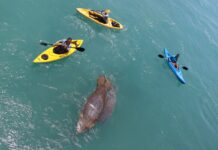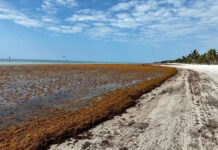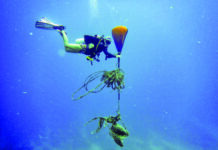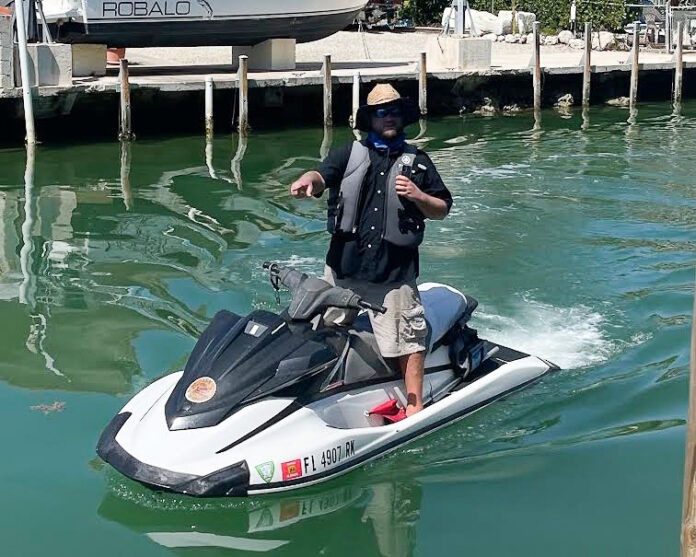
Brad Norris has been running personal watercraft tours out of Old Conch Harbor canal since 2014. He knows this Islamorada waterway behind Old Tavernier Restaurant very well.
But recently, Norris saw something he had never seen before, and it was cause for concern.
“When you see an upside-down goliath grouper spinning on the surface, it catches your attention quickly,” recalled Norris, who owns JSK Watersports.
Norris said the distressed juvenile goliath grouper was at the end of the canal, in the harbor area. The fish was struggling and kept repeating the same troubling movements, over and over again.
“He would come to the surface, spin around a little bit, then he would flip upside down, like his buoyancy was off and then eventually slowly sink to the bottom,” said Norris, who immediately called the Florida Fish and Wildlife Conservation Commission (FWC) hotline.
An FWC response team came out twice, but could not capture the grouper.
“They failed twice at trying to get the fish and had kind of thrown in the white flag,” said Norris.
But this story did not end there. Eventually Norris managed to grab the grouper.
“I was there later in the evening and I had a big dip net ready and I saw him come up,” he recalled. Norris scooped up the grouper, borrowed a neighbor’s fish well and kept the fish alive until FWC returned to retrieve it.
What Norris witnessed may be part of an ongoing fish kill that began last year in the Keys and continues to stump marine biologists.
Since last year, FWC has been recording and investigating what the agency calls abnormal fish behavior off the island chain. Reports of fish spinning started to come into FWC in the fall of 2023. Most of the attention has focused on the endangered smalltooth sawfish. As of April 24, there have been 43 sawfish deaths. But that may be just one part of the picture. FWC reports over 50 other species of fish, including the goliath grouper, have also been observed displaying this unusual and distressing behavior.
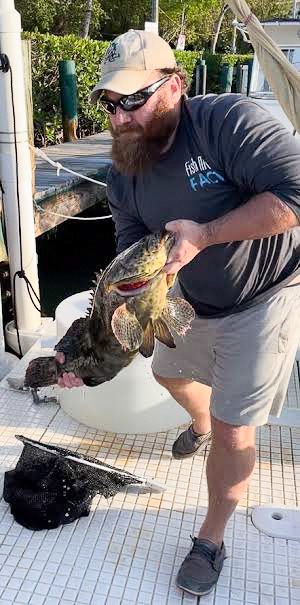
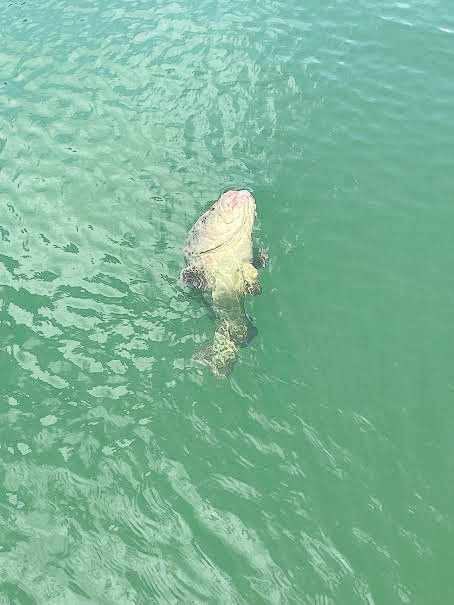
“It hits close to home when you see it somewhere you’ve never seen it before and it’s right there in your backyard,” Norris said .
“FWC have received two goliath grouper for testing; one has already been sent to the University of Southern Alabama for testing last week, the most recent is going to be sent in the near future, both of which had histology and toxin samples taken,” said FWC spokesman Jonathan Veach via an email to Keys Weekly.
So far, FWC has fielded 458 calls to its fish kill hotline, collected 251 fish samples and 200 water samples. Some samples and hotline submissions came from partners at the Bonefish and Tarpon Trust, Lower Keys Guides Association and the Sawfish Hotline.
The wildlife agency has sent 52 fish to the University of South Alabama for analysis and report there are no signs of a communicable pathogen or bacterial infection. So far, the investigation has also ruled out dissolved oxygen, salinity, pH, and temperature as causes of the strange fish behavior or kills.
On top of that, water testing and analysis of fish tissue did not indicate red tide as the cause.
The Department of Environmental Protection continues to test the water for a variety of chemicals, which were either not present or below normal limits. Getting to the bottom of this bizarre fish behavior involves an all-hands-on-deck multi-agency response.
In the Florida Keys, the quality of our water and the health of the amazing creatures that call it home affect us all. Answers to what is causing this disturbing fish behavior cannot come soon enough.
“A lot of our industry comes off of the fish, whether it’s to look at it or eat it,” Norris said.
Sadly, the grouper Norris rescued did not make it.
FWC released the following statement, “Unfortunately, after three days of distress, the goliath grouper had not recovered; therefore, the decision was made to euthanize the fish humanely. Staff collected blood and tissue samples and sent them to specialized laboratories for examination. These samples are of utmost importance in identifying the cause of the distress.” Report fish kills or abnormal fish behavior to FWC at 1-800-636-0511 or by visiting MyFWC.com/ReportFishKill. To report a distressed sawfish, call 844-472-9347 or email Sawfish@MyFWC.com.




